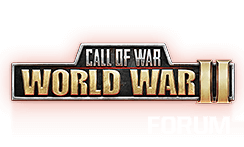Carking the 6th wrote:
The issue is assuming the Allie’s would act a certain way, and the Germans another. Considering How the Germans treated Rotterdam and Amsterdam it’s safe to say that even Western Europeans were not safe, especially the French who were considered somewhat racially inferior due to African and Mediterranean blood (Nazis are dumb). But yeah, this could easily end in disaster. What if Germany and Italy decide to abandon Africa, not wasting resources and losing loads of men and instead fortifying Italy so that the Sicily campaign fails? That would mean the Allies do a lot worse in the war, and are suck outside of mainland Europe… of course the Soviets would still win, but you see a scenario where France gets ravaged and more of Europe is red.
Also, I've always been curious about an alternate historical timeline, where Overlord fails and gets delayed, how much of Europe would become red? Would Italy be split (there were many communists in Italy) or even fully red? Greece? Finland? Denmark? The Soviets might have even demanded full control of Germany if the war had gone that badly for the Western Powers. It could have even led to a Third World War, depending on how Stalin thought at the time...
Have an amazing rest of your day 
"Everything is impermanent. The only thing that is permanent it impermanence itself."
Need support? ---> Send a ticket here!
dxter's CoW Battle Calculator ---> Use it here!

o7

"Everything is impermanent. The only thing that is permanent it impermanence itself."
Need support? ---> Send a ticket here!
dxter's CoW Battle Calculator ---> Use it here!

o7
